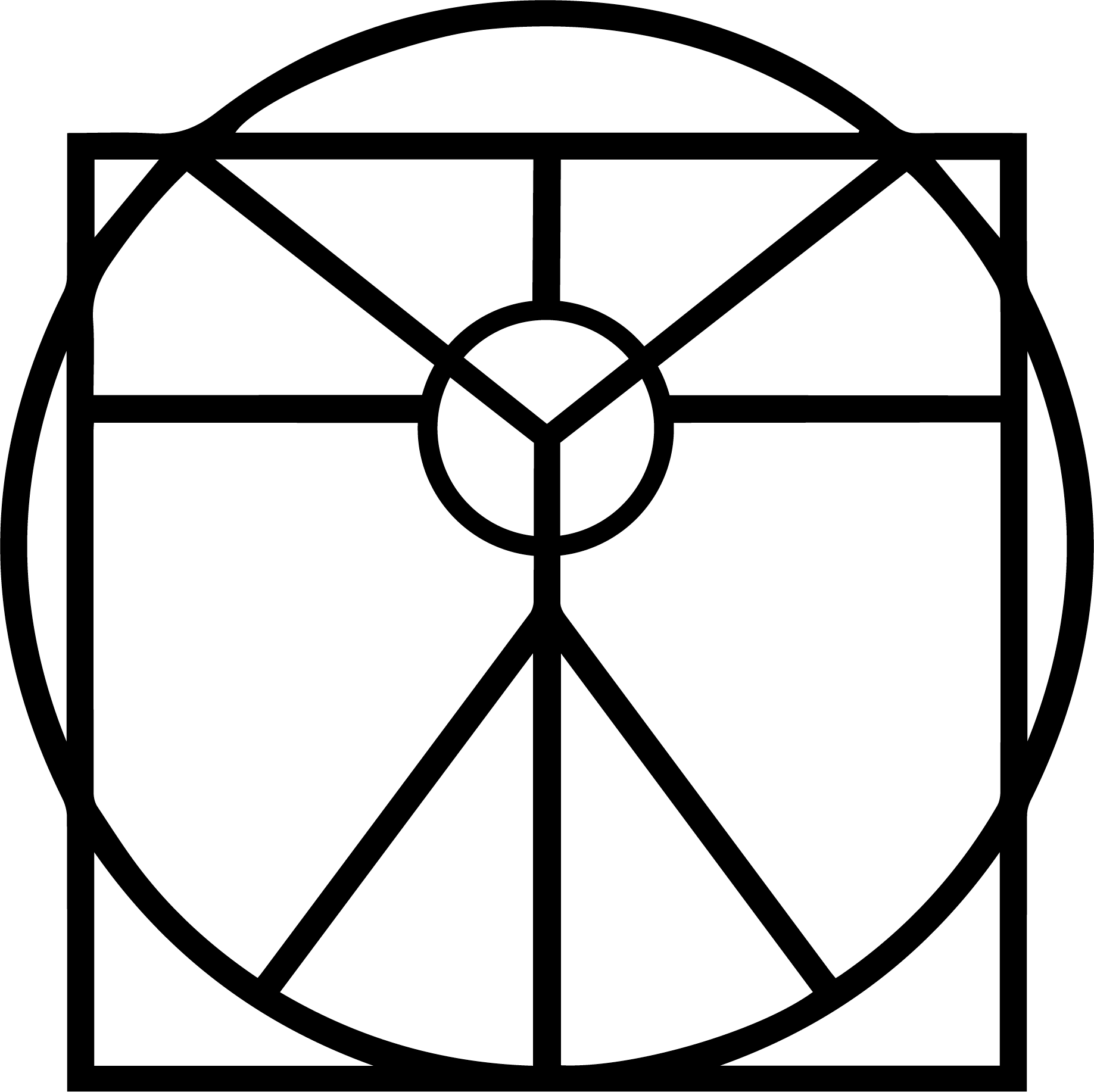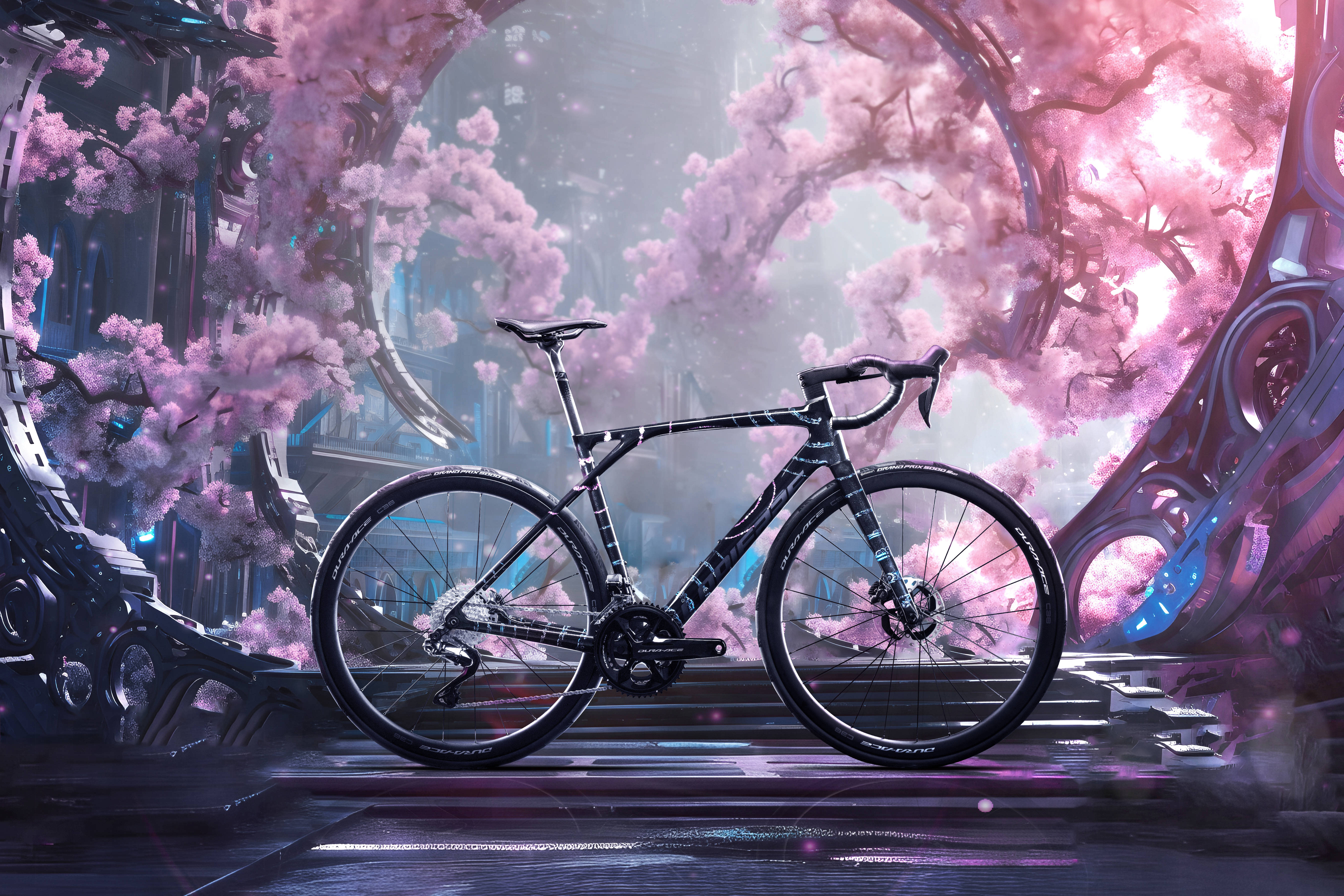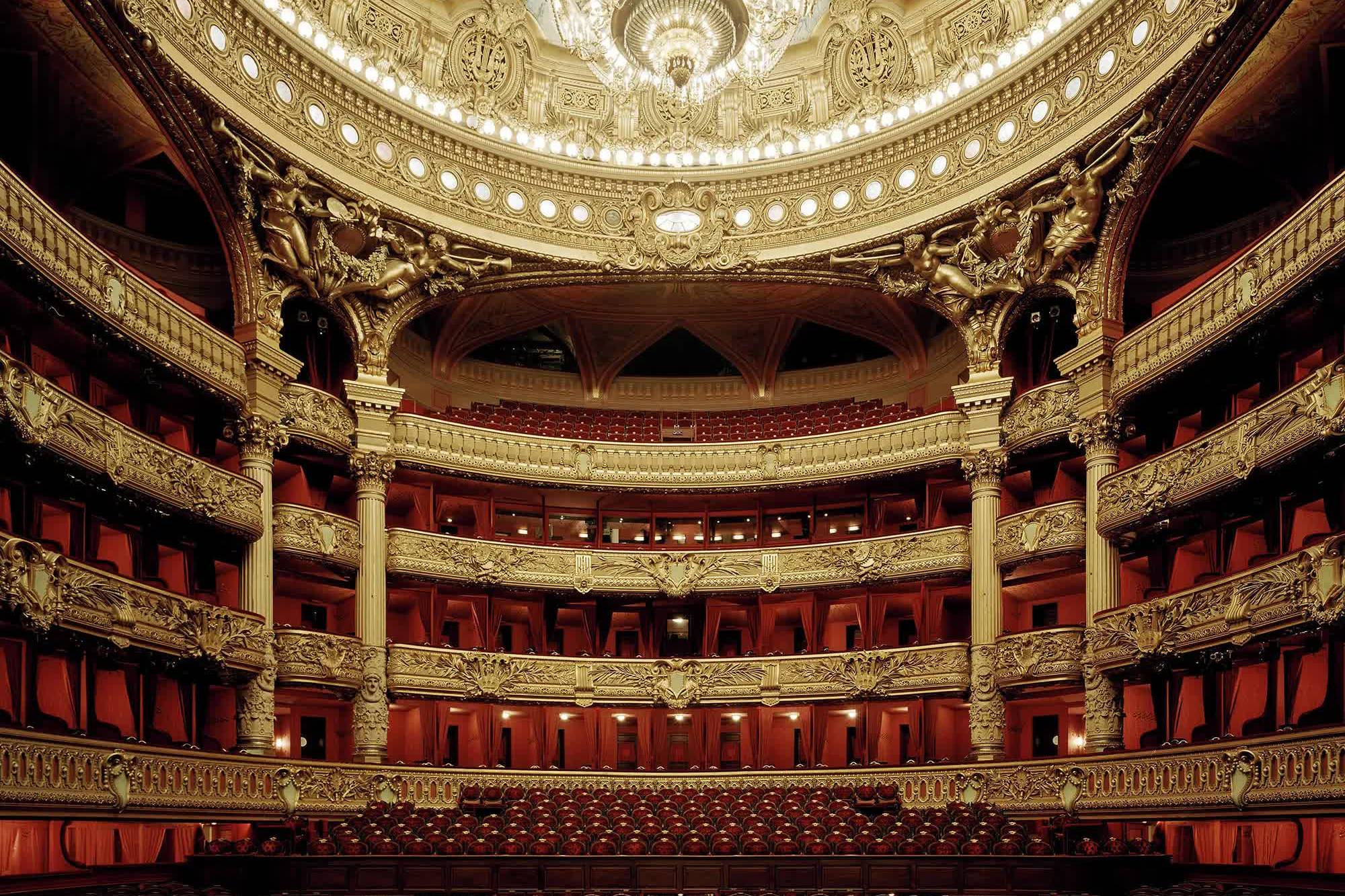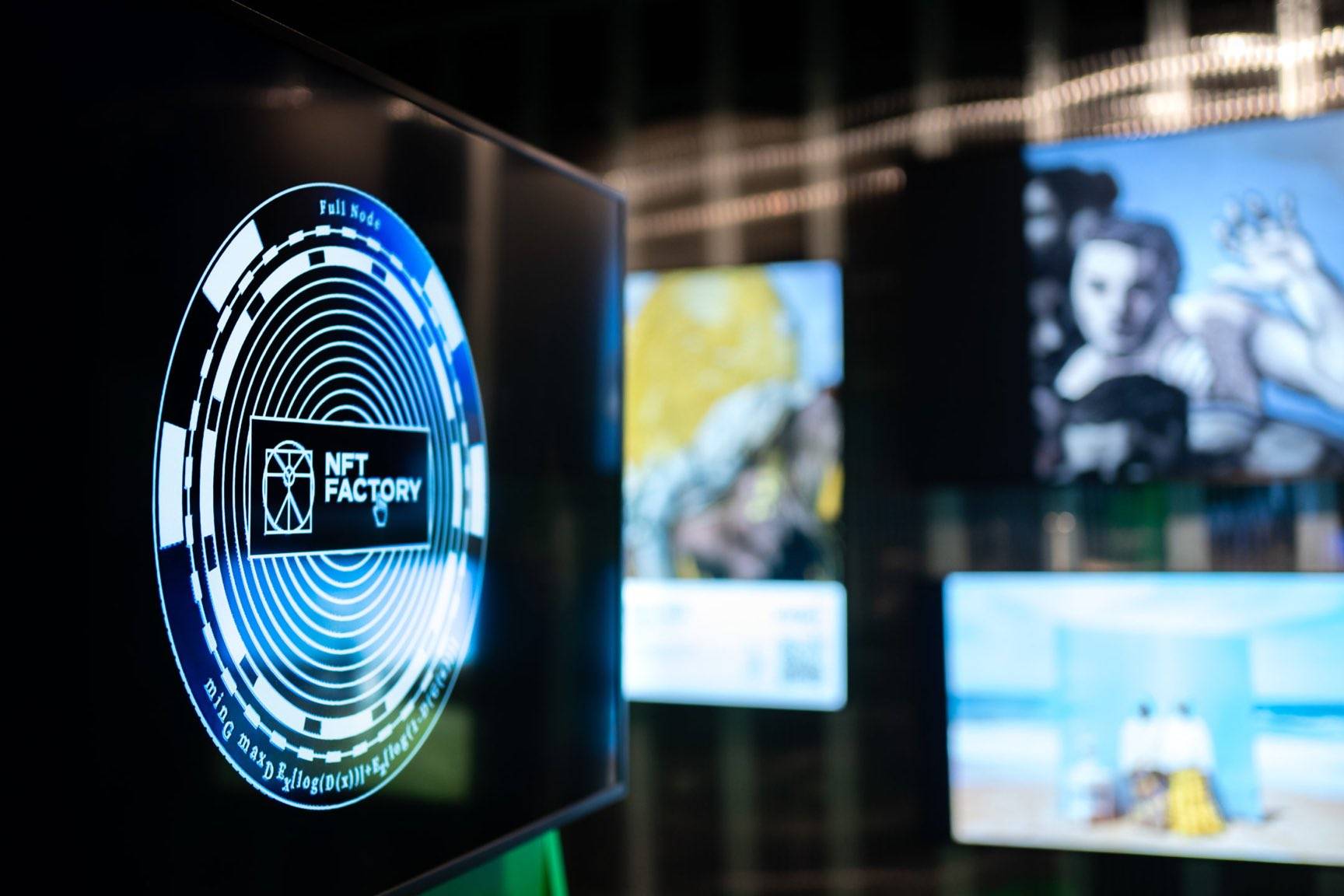A commissioned artwork on Meteorology
We have been commissioned to create an artwork for a friend of ours.
We wanted to work on meteorology for a while, so when we heard that he was interested in this subject as well, we knew there was something to be done !
In order to create “A bright future”, we gathered 5000 satellite images, representing the visualization of different meteo trends, each one with a specific purpose.
We decided to mix all those inputs, and to use them as data for our Generative Adversarial Networks algorithms.
We decided not to categorize the data, so that the algorithms wouldn’t make any distinctions between the different types of inputs, allowing it to create results which mixes these visuals one with the others. In doing so, our algorithms created a general forecast for the future, which looks bright !
A Bright Future
THE ARTWORK
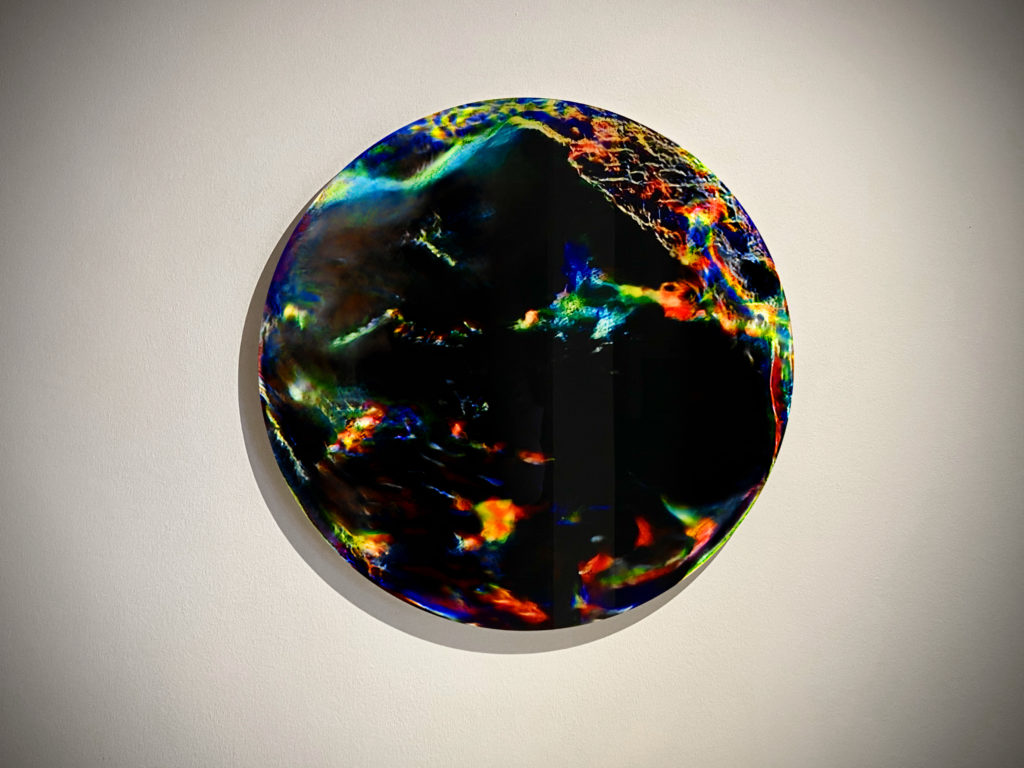
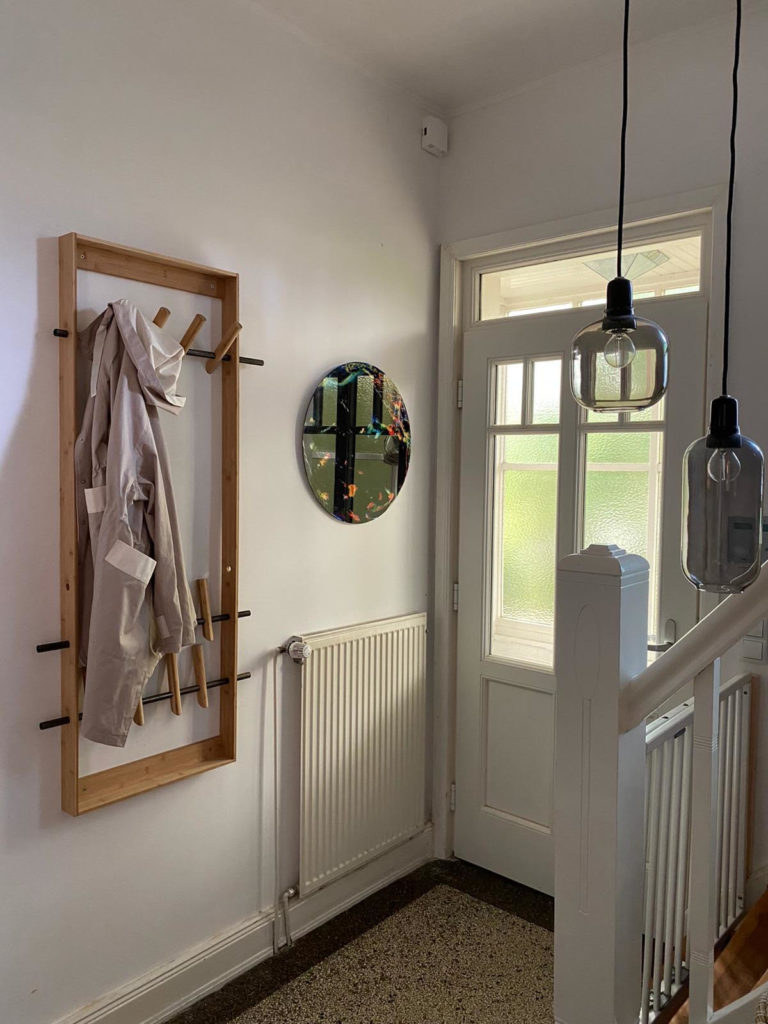
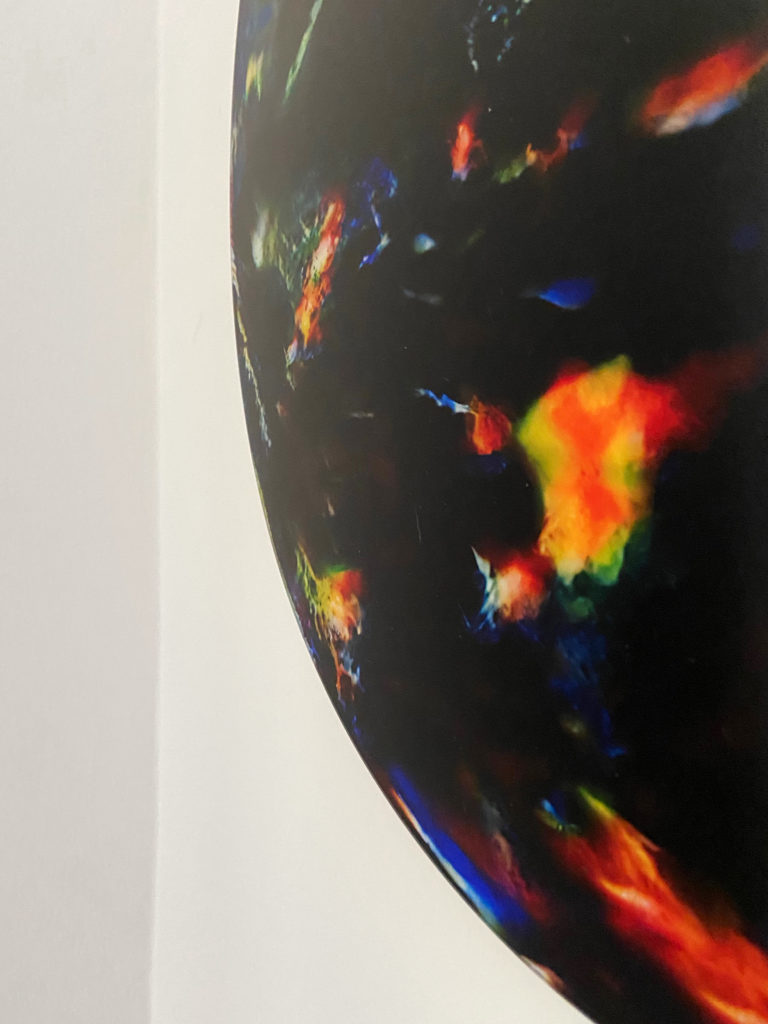

We have decided to use aluminium as medium for the physical conception of the artwork.
Aluminium (dibond) is a very qualitative support, as it is both light and rigid with a slightly satin aspect.
High definition printing on this support leads to a very nice rendering and a colour density and contrast which is very close to a matte paper print. Adding glass on top of the print allows to give back a futuristic and bright aspect to the artwork, resulting in a contrast we really love.
We wanted the artwork to be round in order to show an accurate representation of what we worked on with our database.
A Bright Future
A Bright Future, 60x60cm, GANs on aluminium, 2020
THE DATABASE
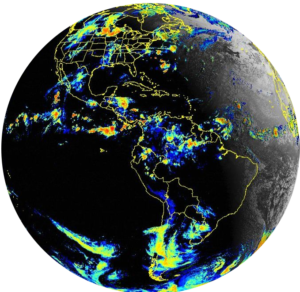
SANDWICH RGB
With Sandwich RGB it is possible to monitor those
cloud top features of mature convective storms
which are possibly related to severity.
It combines
two different image types, a high resolution visible
band, and (most often) a colour-enhanced infrared
window image.
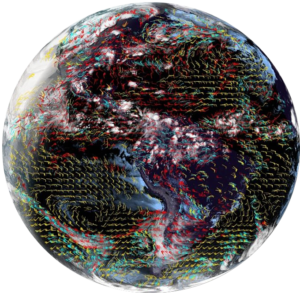
DERIVED MOTION WIND
Derived Motion Wind Vectors (DMW) are
produced using sequential ABI images and as
such they can provide important information
about winds at different levels during asynoptic times.
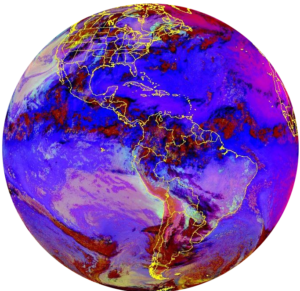
NIGHTTIME MICROPHYSICS RGB
The distinction between low clouds and fog insatellite imagery is often a challenge. NtMicro RGB
is an efficient tool to quickly identify other cloud
types in the mid and upper atmosphere.
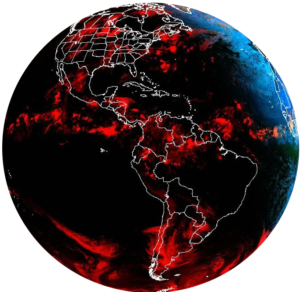
DAY CLOUD PHASE
This RGB is used to evaluate the phase of cooling cloud tops to monitor convective initiation,
storm growth, and decay. It can also be used to
identify snow on the ground.
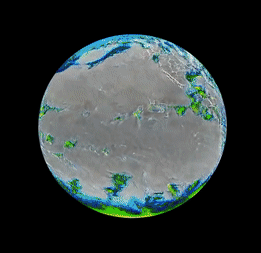
Related Posts
July 2023
Obvious x Lapierre
We partnered with the French high-end bicycle manufacturer to design a bike for…
April 2023
Obvious x L’Opéra de Paris
We designed the art pieces for the inaugural NFT drop of the Opéra de Paris…
October 2022
The Node – NFT Factory
We developed the token for NFT Factory, the community hub for NFTs in Paris.
